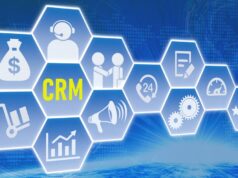From the increasing popularity of innovative apps and digital marketplaces to the COVID-19 pandemic and now AI, there have been several micro and macro disruptions to the job market in recent years that continue to shape the evolution of work in Canada. Notable among the changes is the rise of the gig economy.
But navigating the tax implications for Canadians enjoying the flexibility and independence of these alternative work arrangements can be challenging, and mistakes costly. Below is an overview of important tax considerations for freelancers and gig economy workers.
If you drive for Uber, rent out a home on Airbnb, sell content on OnlyFans, or even walk the neighbourhood dogs for pay, consulting professional tax lawyers will help you understand your tax obligations, prepare a tax-planning strategy, advise you of programs and credits that can put cash back in your hands, and give you peace of mind that allows you to focus on your work free from fear of the tax man.
Think About How You Register Your Business with the CRA

Registering as self-employed is a crucial milestone for individuals venturing into entrepreneurship in Canada. It serves as a fundamental step in establishing your legal identity. Once you have successfully registered as a business owner, a world of benefits becomes accessible to you, including opportunities for grants and funding and the ability to deduct eligible business expenses from your income.
Fortunately, the registration process is relatively straightforward. For sole proprietorships and partnerships, it’s essentially as simple as visiting the Canada Revenue Agency (CRA) website and completing the requisite forms. There, you can obtain your business number, which will serve as your unique identifier for tax purposes.
Setting up a corporation, however, requires legal documentation like articles of incorporation, among others, and corporations are subject to more stringent regulations. The trade-off is more opportunities for personal tax savings and greater protection for corporate business owners.
Once established, it is complicated and time-consuming to switch over, which is why research and thought must go into this decision as to what’s best for your present circumstances and future goals – and why consulting a tax-planning professional is vital for getting every business off on the right financial foot.
Reporting Self-Employment Taxes

As a freelancer, contract, or gig worker, you are considered to be self-employed and/or a business owner, which means you are responsible for calculating and remitting your own income tax, Canada Pension Plan (CPP) contributions, and Employment Insurance (EI) premiums.
Also, along with a T1 Personal Income Tax Return, you must include a Statement of Business or Professional Activities (Form T2125), on which you report your income and expenses and calculate your net income or loss to use on your T1.
Paying Your Self-Employment Taxes to the CRA

You may have to pay taxes on your business income throughout the year if you are a self-employed taxpayer – by making installment payments to the CRA in the form of quarterly tax instalments.
This is done to avoid a heavy tax burden at the end of the year. Generally speaking, the due dates for these payments are the 15th of March, June, September, and December.
There’s also a strong possibility that you will have to charge GST/HST on your goods and services.
GST/HST Considerations
Freelancers who make GST/HST taxable sales that exceed the GST/HST registration threshold (at the time of this writing, it is $30,000 in revenues over 4 or less consecutive quarters) must collect and remit the Goods and Services Tax (GST) or Harmonized Sales Tax (HST) to the CRA.
Deductible Business Expenses

One of the advantages of freelance work is the ability to deduct legitimate business expenses and reduce your taxable income. Common deductible business expenses can include:
- Home office expenses
- Equipment and supplies
- Professional development
- Marketing and advertising costs
- Professional fees
There are a multitude of deductible expenses and credits available to business owners and self-employed taxpayers, many which aren’t obvious or widely known. This is a prime example of how consulting a licensed tax expert before filing your taxes pays you back several times over for years to come.
Tracking Income and Bookkeeping

Follow these income tracking and bookkeeping tips consistently and from the start, and your business will run more efficiently and reduce future stress:
- Separate Business and Personal Finances. Maintain separate bank accounts and credit cards for business and personal use. This simplifies record-keeping and prevents confusion when tracking business income and expenses.
- Track Income in Real-Time. Record all sources of income promptly, accurately, and as detailed as possible. Once set up, digital tools, like accounting software and mobile apps, can automate payment processing, expense reporting, and bookkeeping instantaneously.
- Organize Receipts and Invoices. Categorizing and labelling receipts, invoices, and all business-related transaction records make it easier to claim deductions and reconcile income with expenses during tax season.
- Retain Your Documentation! You are required to keep all financial records, including receipts, invoices, bank statements, and tax filings, for at least six years as per CRA requirements. It’s a good idea to have both physical and digital copies and securely-stored backups of each.
CRA-Recognized Bookkeeping Methods
In terms of reporting business income, there are two main accounting methods available: the cash basis and the accrual basis.
With the cash basis method, income and expenses are recognized when cash is received or paid. On the other hand, the accrual basis method records income and expenses when they are earned or incurred, regardless of when the cash transaction takes place.
It’s important to note that the Canada Revenue Agency allows farmers, fishers, and self-employed commission agents to choose between these methods for reporting income. They also have the flexibility to switch between the two if they meet the eligibility criteria.
However, for all other self-employed individuals, the accrual method is mandatory for reporting income.
This distinction ensures consistency and accuracy in reporting income and expenses and generally aligns with the unique needs and circumstances of different types of self-employed individuals.
It’s crucial to understand which method applies to your situation and to maintain proper records to support your chosen accounting method when filing your taxes.
The Bottom Line for Your Freelance Business
By implementing sound book- and record-keeping practices and consulting a licensed tax expert, you can help ensure that your freelance gig, contract work, or small business remains in CRA compliance, minimize its errors, and that you have a clear financial picture of your business operations.









